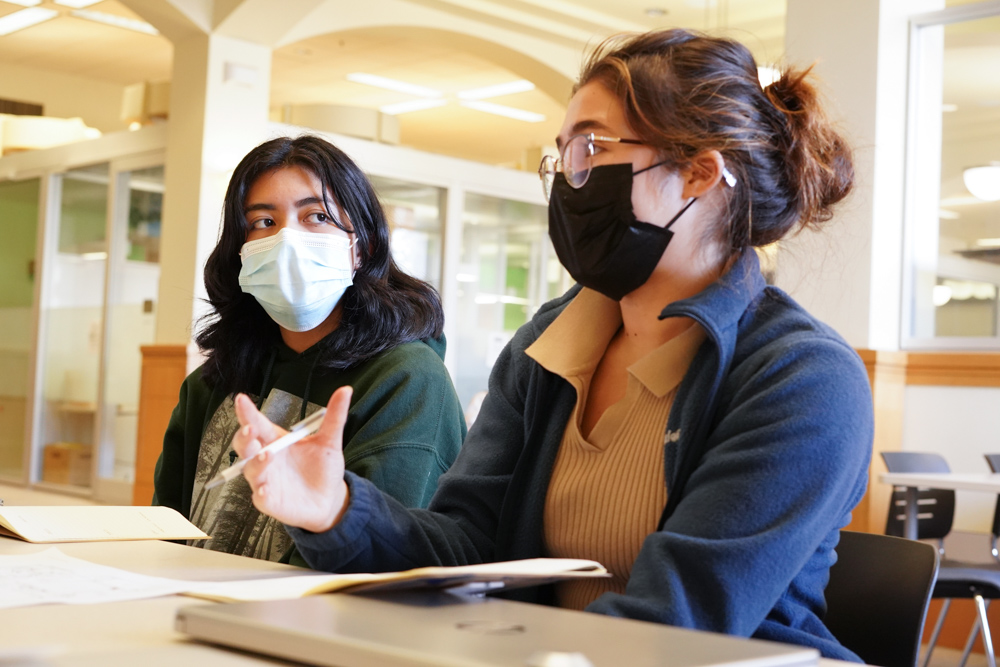
Students: Need help with your research?
Starting this month, undergraduate Library fellows are offering in-person peer library research assistance. Fellows are available 1-3 p.m. Mondays and Wednesdays through Nov. 30.

Students: Need help with your research?
Starting this month, undergraduate Library fellows are offering in-person peer library research assistance. Fellows are available 1-3 p.m. Mondays and Wednesdays through Nov. 30.